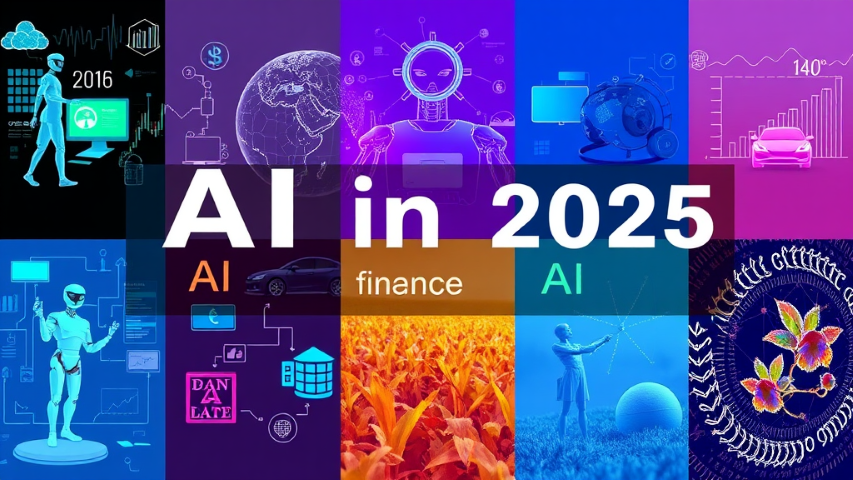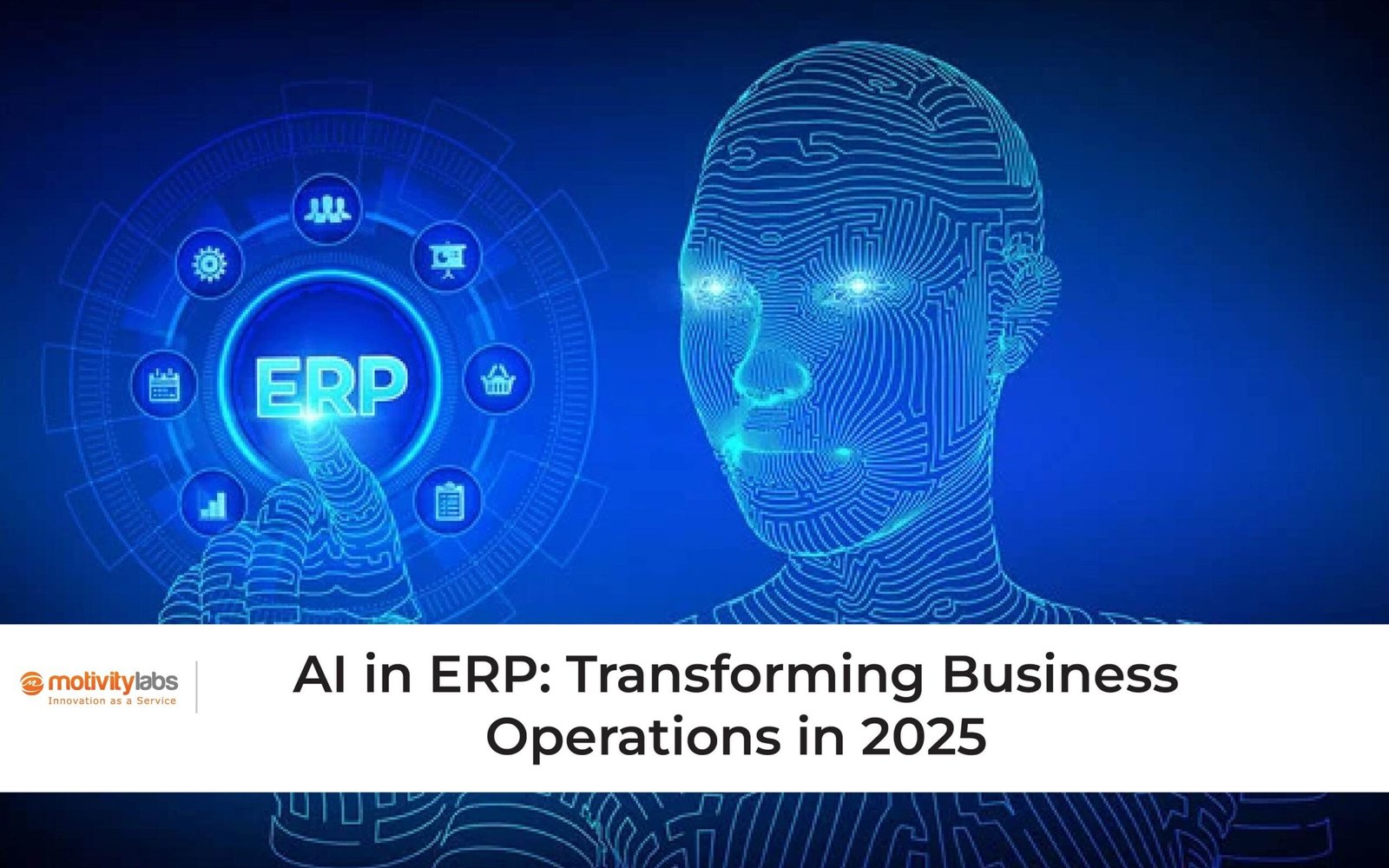“`html
The AI Revolution: Transforming Business Operations and Strategies
Estimated reading time: 12 minutes
Key Takeaways
- Artificial Intelligence (AI) is rapidly changing how businesses operate, offering significant efficiency gains and new strategic capabilities.
- AI is revolutionizing various industries, including healthcare, finance, retail, manufacturing, and customer service, through practical applications.
- Key benefits of AI in business operations include enhanced efficiency, improved decision-making, personalized customer experiences, optimized resource management, and fostering innovation.
- Businesses face challenges in AI adoption, such as data privacy, talent gaps, integration complexities, ethical considerations, and implementation costs.
- Developing a robust AI business strategy for 2025 and beyond is crucial for leveraging AI’s potential and ensuring long-term growth.
Table of contents
Introduction
The pace of technological advancement is breathtaking, and at the forefront of this transformation is Artificial Intelligence (AI). The **impact of artificial intelligence on business operations** is no longer a distant prospect; it is a present reality that is fundamentally reshaping industries and redefining competitive landscapes. AI, broadly defined as systems capable of performing tasks that typically require human-like decision-making, perception, and analysis, is moving from theoretical discussions to integral components of successful business strategies.

This blog post aims to demystify the AI revolution for businesses. We will explore how AI is **revolutionizing industries**, detail the significant **benefits of AI in business operations**, address the inherent **AI business innovation challenges**, and provide guidance on crafting an effective **AI business strategy 2025**. While AI presents immense opportunities for growth and efficiency, it is imperative for businesses to also be prepared for the complexities and challenges that accompany AI adoption and innovation.
As PwC notes, “*The rapid advancement of artificial intelligence (AI) is fundamentally transforming how businesses operate, delivering broad efficiency gains, new strategic capabilities, and fueling an unprecedented wave of innovation.*”¹ This sentiment is echoed by the Strategy Institute, emphasizing that “*AI’s evolution from a promising technology to a core business driver underscores the importance of deliberate planning, especially as companies look toward 2025 and beyond.*”² The journey into AI is not just about adopting new tools; it’s about embracing a new way of thinking and operating. You can learn more about how AI is changing the world at [https://www.penbrief.com/how-ai-is-changing-the-world](https://www.penbrief.com/how-ai-is-changing-the-world) and discover guides on how AI is transforming businesses at [https://www.penbrief.com/how-ai-is-transforming-businesses-guide](https://www.penbrief.com/how-ai-is-transforming-businesses-guide). The future trends are already emerging, as highlighted in [https://www.penbrief.com/top-ai-trends-to-watch-2025](https://www.penbrief.com/top-ai-trends-to-watch-2025) and the revolutionary innovations changing the world at [https://www.penbrief.com/revolutionary-ai-innovations-changing-world](https://www.penbrief.com/revolutionary-ai-innovations-changing-world). The **impact of AI on digital transformation strategies** is undeniable, as explored at [https://www.penbrief.com/ai-impact-digital-transformation-strategies](https://www.penbrief.com/ai-impact-digital-transformation-strategies).
The AI Revolution: Transforming Industries
AI is no longer confined to research labs or theoretical discussions; it is actively **revolutionizing industries** across a diverse spectrum of sectors. Its practical applications are driving unprecedented change and creating new possibilities.

* **Healthcare:** AI is accelerating drug discovery, enhancing diagnostic accuracy, and optimizing staffing to alleviate clinical labor shortages. Health insurers are leveraging AI to streamline operations and personalize patient care. This is particularly crucial in addressing the growing demands on healthcare systems.³ For more on AI’s medical breakthroughs, visit [https://www.penbrief.com/revolutionary-ai-medical-breakthroughs-healthcare](https://www.penbrief.com/revolutionary-ai-medical-breakthroughs-healthcare).
* **Finance:** In the financial sector, AI is a powerful tool for fraud detection, sophisticated risk modeling, and delivering highly personalized client services. AI-native fintech firms are actively reshaping traditional business models, offering innovative solutions for everything from lending to investment management. The impact on fraud detection is particularly significant, as explored at [https://www.penbrief.com/unstoppable-ai-fraud-detection-finance-revolution](https://www.penbrief.com/unstoppable-ai-fraud-detection-finance-revolution).

* **Retail:** AI is transforming the retail experience through hyper-personalized marketing, dynamic pricing strategies, and optimized supply chains. These applications lead to enhanced customer engagement and operational excellence, making shopping more convenient and efficient. Game-changing AI marketing tools are detailed at [https://www.penbrief.com/game-changing-ai-marketing-tools](https://www.penbrief.com/game-changing-ai-marketing-tools).
* **Manufacturing:** The manufacturing industry benefits immensely from AI through predictive maintenance, which prevents costly equipment failures. Computer vision enhances quality control, and AI-driven supply chain optimization leads to greater overall efficiency. The application of AI in cybersecurity is also a growing trend, as discussed in [https://www.penbrief.com/breakthrough-ai-cyber-defense-revolution](https://www.penbrief.com/breakthrough-ai-cyber-defense-revolution).

* **Customer Service:** AI-powered chatbots and virtual assistants are providing 24/7 support, enabling rapid inquiry resolution, and significantly improving customer satisfaction and operational efficiency. Microsoft highlights the growing trend of AI in customer service and other areas in their insights from [https://news.microsoft.com/source/features/ai/6-ai-trends-youll-see-more-of-in-2025/](https://news.microsoft.com/source/features/ai/6-ai-trends-youll-see-more-of-in-2025/).
The underlying mechanisms driving this transformation are clear: AI excels at automating routine processes, performing deep data analysis to extract actionable insights, and leveraging advanced predictive capabilities to enable real-time decision-making. This combination empowers businesses to operate more intelligently and adapt more quickly to market changes. As noted by PwC, the integration of AI drives “broad efficiency gains, new strategic capabilities, and fueling an unprecedented wave of innovation.”¹ The broader impact of AI on how the world functions is a continuous subject of exploration, with insights available at [https://www.penbrief.com/how-ai-is-changing-the-world](https://www.penbrief.com/how-ai-is-changing-the-world).
Unpacking the Benefits of AI in Business Operations
The widespread adoption of AI is underpinned by a compelling set of tangible **benefits of AI in business operations**. These advantages translate directly into improved performance, increased profitability, and enhanced competitiveness.

* **Enhanced Efficiency and Automation:** AI excels at automating repetitive, manual, and time-consuming tasks. This automation not only boosts productivity but also significantly reduces operational costs. By offloading routine work to AI, human employees are freed up to focus on more complex, creative, and strategic responsibilities that require human ingenuity and critical thinking. This is a key driver for business strategy, as highlighted by the Strategy Institute.⁴
* **Improved Decision-Making:** AI systems are capable of processing and analyzing massive datasets that would be impossible for humans to manage. They can uncover subtle patterns, predict future outcomes with remarkable accuracy, and generate actionable recommendations. This empowers leaders to make faster, more informed, and data-driven strategic decisions, moving beyond intuition to evidence-based strategies. PwC emphasizes AI’s role in providing these strategic capabilities.⁵

* **Personalized Customer Experiences:** AI-driven analytics enable businesses to understand customer behavior at a granular level. This deep understanding facilitates highly targeted marketing campaigns, customized product or service recommendations, and bespoke customer service interactions. The result is increased customer engagement, loyalty, and ultimately, higher customer lifetime value. Microsoft points to this as a key AI trend for the coming years.⁶
* **Optimized Resource Management:** AI plays a crucial role in accurately forecasting demand, efficiently managing inventory levels, streamlining complex supply chains, and proactively scheduling maintenance for equipment. By minimizing waste, reducing operational bottlenecks, and maximizing asset performance, AI contributes to significant cost savings and operational smoothness.⁵
* **Innovation and New Opportunities:** Beyond optimizing existing processes, AI’s advanced capabilities can unlock the creation of entirely new products, services, and innovative business models. This allows companies to gain a significant competitive edge and achieve service differentiation in rapidly evolving markets. The transformative potential of AI is a key area of discussion.⁵
Embracing AI is not just about incremental improvements; it’s about unlocking new levels of performance and creating pathways for future growth. For practical applications, explore tools that boost productivity at [https://www.penbrief.com/5-ways-to-use-ai-strategies-to-boost-productivity](https://www.penbrief.com/5-ways-to-use-ai-strategies-to-boost-productivity) and discover AI-powered productivity apps at [https://www.penbrief.com/10-game-changing-ai-powered-productivity-apps](https://www.penbrief.com/10-game-changing-ai-powered-productivity-apps). The future of AI in customer service is also evolving rapidly, as discussed in [https://www.penbrief.com/future-of-ai-chatbots-in-customer-service](https://www.penbrief.com/future-of-ai-chatbots-in-customer-service). AI also enhances collaboration, particularly in remote work environments, as seen in [https://www.penbrief.com/powerful-ai-collaboration-remote-work](https://www.penbrief.com/powerful-ai-collaboration-remote-work) and its role in transforming workspaces at [https://www.penbrief.com/game-changing-ai-powered-workspaces](https://www.penbrief.com/game-changing-ai-powered-workspaces).
Navigating AI Business Innovation Challenges
While the potential of AI is immense, businesses must also be prepared for the practical and complex **AI business innovation challenges** that arise during its adoption and integration. Addressing these hurdles proactively is crucial for successful AI implementation.

* **Data Privacy and Security Concerns:** Handling sensitive data is a paramount concern. Robust data governance, stringent security protocols, and strict compliance with privacy regulations like GDPR and CCPA are essential, especially in sectors such as healthcare and finance. The potential for data breaches and misuse necessitates a strong security posture.⁵
* **Talent Gap and Skills Shortage:** The demand for AI expertise far outstrips the supply of qualified professionals. This talent gap requires businesses to invest in comprehensive upskilling and reskilling programs for their existing workforce. Simultaneously, active recruitment of specialized AI talent is necessary to build and maintain AI capabilities.⁷

* **Integration with Existing Systems:** Integrating new AI solutions with legacy IT infrastructure and established business processes can be complex and costly. This often requires careful planning, potential infrastructure modernization, and a clear understanding of how AI will interact with existing systems to avoid disruption.⁵
* **Ethical Considerations and Bias:** Responsible AI development and deployment are critical. AI models can amplify biases present in the training data, leading to unfair or discriminatory outcomes. Implementing proactive measures to ensure fairness, transparency, and accountability in AI systems is a significant ethical imperative.⁵
* **Cost of Implementation and ROI:** Implementing AI solutions often demands a substantial upfront financial investment. Businesses must conduct thorough cost-benefit analyses, define clear metrics for measuring return on investment (ROI), and ensure that AI spending aligns with measurable business outcomes. This pragmatic approach is vital for justifying the investment and ensuring its long-term value.⁴
Successfully navigating these challenges requires a strategic and thoughtful approach to AI adoption. Ensuring cybersecurity is paramount, and resources like [https://www.penbrief.com/cybersecurity-tips-stay-safe-online](https://www.penbrief.com/cybersecurity-tips-stay-safe-online) and [https://www.penbrief.com/protect-smart-home-cyber-threats](https://www.penbrief.com/protect-smart-home-cyber-threats) offer valuable insights. Staying ahead of evolving threats is also key, as discussed in [https://www.penbrief.com/secure-smartphone-2025-guide](https://www.penbrief.com/secure-smartphone-2025-guide) and [https://www.penbrief.com/explosive-cybersecurity-threats-2025-trends](https://www.penbrief.com/explosive-cybersecurity-threats-2025-trends). AI is also playing a role in enhancing cloud security, as explored in [https://www.penbrief.com/unbeatable-ai-cloud-security-next-gen](https://www.penbrief.com/unbeatable-ai-cloud-security-next-gen).
Crafting Your AI Business Strategy for 2025 and Beyond
To effectively harness the power of AI, businesses need a well-defined and forward-looking **AI business strategy 2025**. This strategy should be a roadmap for integrating AI in a way that drives sustainable growth and competitive advantage.

* **Start with Clear Business Objectives:** AI adoption should never be technology-driven for its own sake. Instead, it must be guided by specific, measurable, achievable, relevant, and time-bound (SMART) business goals. AI initiatives must directly align with the overarching strategic priorities of the organization.⁴
* **Identify High-Impact Use Cases:** Systematically identify specific business processes or areas where AI can deliver the most significant value. This could involve automating repetitive tasks, enhancing customer experiences, optimizing supply chain logistics, or improving internal decision-making.⁴

* **Invest in Robust Data Infrastructure:** High-quality data is the bedrock of effective AI. Businesses must ensure they have clean, accurate, well-integrated, secure, and readily accessible data. Investing in a solid data infrastructure is fundamental for the successful training and performance of AI applications.⁵
* **Foster an AI-Ready Culture:** Cultivating organizational buy-in is essential, from leadership down to frontline employees. This involves comprehensive training programs to equip the workforce with necessary AI-related skills and fostering cross-functional collaboration on AI initiatives. Leaders must champion the transformative potential of AI.⁷

* **Choose the Right AI Solutions and Partners:** Carefully evaluate and select AI technologies, platforms, and vendors. Considerations should include scalability, suitability for specific business needs, and the quality of support provided. Tailoring solutions for maximum value realization is key.⁵
* **Iterate and Adapt:** AI implementation is an ongoing, iterative process, not a one-time project. Businesses should continuously monitor AI performance, analyze outcomes, refine strategies based on learnings, and remain agile in response to the evolving AI landscape. This adaptive approach ensures long-term relevance and effectiveness.⁷

Proactive planning is essential for success. Stay informed about emerging trends and regulations, such as those discussed in [https://www.penbrief.com/top-ai-trends-to-watch-2025](https://www.penbrief.com/top-ai-trends-to-watch-2025) and [https://www.penbrief.com/understanding-new-ai-regulations-guide](https://www.penbrief.com/understanding-new-ai-regulations-guide). Governance frameworks are also becoming increasingly important, with insights on agentic AI governance at [https://www.penbrief.com/agentic-ai-governance-framework-2025](https://www.penbrief.com/agentic-ai-governance-framework-2025) and trends in agentic AI at [https://www.penbrief.com/agentic-ai-trends-2025](https://www.penbrief.com/agentic-ai-trends-2025). The overarching **impact of AI on digital transformation strategies** continues to be a critical area of focus, as explored at [https://www.penbrief.com/ai-impact-digital-transformation-strategies](https://www.penbrief.com/ai-impact-digital-transformation-strategies).
“`




